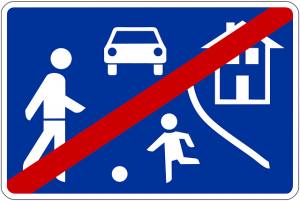Privacy is Important

An anti-social network to some may seem to discourage interraction
These news reports raise concerns of privacy. While privacy is important, the only way to be completely safe from online predators, online i.d. thieves and people leaking your private life details is not to turn on a computer. Anything you post online, no matter how safe you believe it is, can always be hacked. So rule #1 is this: don’t post anything online you would be embarrassed to see on the front page of the Wall Street Journal or New York Times.
While privacy is important, it is never guaranteed.
What is an Anti-Social Network?
People want to belong. You should hear my son complain that all his friends are on Facebook and he isn’t. I tell him he isn’t old enough and legally (according to Facebook rules), his friends aren’t either. There are also some people who simply don’t like Facebook because of the horror stories they hear about the social network. If it isn’t cyberbullying or cyberstalking, it is lurid stories of affairs and runaway wives or husbands and broken families.
Although these people do not want to belong to Facebook, they want to belong somewhere. They were created with a need to belong. There are outlets where such people can belong. There are entrepreneurs creating social networks just for them. These entrepreneurs assure the members who join, what I call their anti-social networks, that all of their posts are private, unsearchable by Google. These anti-social networks even make searching for friends and long lost relatives impossible on their own networks. The odd thing about these anti-social networks is that they bill themselves as social networks for people who want their privacy to stay private.
There are anti-social networks which wave that anti-social flag with pride. One such network is Ruduz.com. It is not an anti-social network in the classic sense of not allowing people to connect easily to one another. Ruduz.com is actually a social network for people who are anti-social.
There’s an Anti-Social Network For You
 A publicity blitz was recently launched by FamilyHQ.com. This is not billed as an anti-social network but as a private social network. Their website states, “No one can search for you.” And their big selling point is the idea that the only people who can connect with you are those you invite. This seems to me like LinkedIn without the job finding and resume niche. A recent valuation of FamilyHQ.com only placed it at $1,000,000. They hope to have 500,000 users by the end of 2012.
A publicity blitz was recently launched by FamilyHQ.com. This is not billed as an anti-social network but as a private social network. Their website states, “No one can search for you.” And their big selling point is the idea that the only people who can connect with you are those you invite. This seems to me like LinkedIn without the job finding and resume niche. A recent valuation of FamilyHQ.com only placed it at $1,000,000. They hope to have 500,000 users by the end of 2012.
As for the privacy FamilyHQ.com says it can offer, I can think of times when I wish people could not search for me. But in reality, on most social networks, I don’t have to answer messages from people who have found me and I definitely don’t have to follow those people or friend them back. But I do understand that if someone can’t find you, there’s no need to offend them by ignoring their messages or their friend requests. We sometimes just don’t like to offend people, whether we consider them friends or not.
One of the things I think the founders of FamilyHQ.com have dismissed is the fact that this world is becoming less private each day. Just look at what the world posts on facebook or tweets. Listen to the conversations inside your local Starbucks. People today seem not to care what people know about them. It’s not a trend to love, but a trend that may relegate private social networks to the social media graveyard.














Discussion
No comments yet.